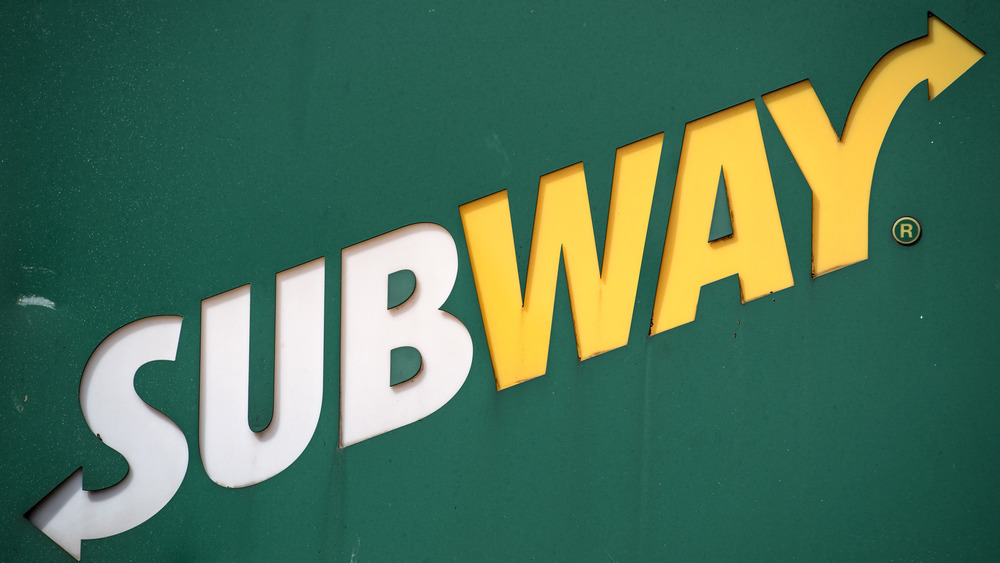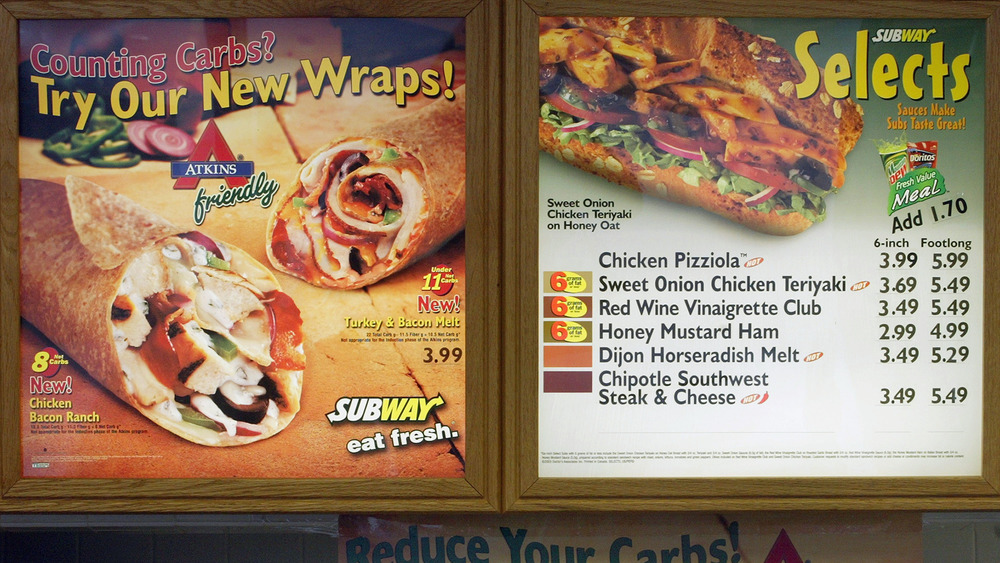Subway Is Being Sued For Its Chicken Sandwiches. Here's Why
When you need to grab a quick bite on the go, Subway provides the perfect sandwich for any occasion. This business model that can accommodate even the pickiest eaters has paid off— according to the New York Times, Subway boasted over 24,000 locations in the U.S. alone in 2019, and it ranks as one of the largest fast-food franchises in the country. While the chain has accrued a considerable amount of clout in the business world, a variety of problems lie just below the surface. The chain has been accused of pitting its franchises against each other and unfairly shutting down individual restaurants for incredibly minor infractions, but now a new lawsuit in Quebec might truly knock Subway down a peg.
According to CTV News, citizens of Quebec can join a class action lawsuit filed against Subway in response to the restaurant allegedly falsely misrepresenting their chicken sandwiches as having contained chicken. If you have prematurely started panicking and wondering what you ate, things might not be as bad as you think. The lawsuit represents anyone who bought a chicken sandwich in Quebec between February 24, 2014 and December 31, 2017. During this time, CBC Marketplace tested the DNA from Subway's Chicken at a Trent University lab, and the results concluded that the meat contained 50% chicken and 50% soy (via CBC Marketplace).
How will Subway's legal battle play out?
According to CTV News, Subway has denied the allegations, claiming that their chicken contains less than 1% soy. The lawsuit has floated around in legal limbo for years, having been denied in 2019 and just recently given the green light to proceed by Quebec's Court of Appeals. If Subway loses, it must refund the cost of a chicken sandwich to anyone who purchased one between 2014 and 2017, while also facing further punitive damages. The news doesn't look good for Subway, especially considering they brought up a defamation suit against CBC for claiming their chicken contained 50% soy but promptly had the case dismissed and were ordered to pay CBC $500,000 in damages to the news outlet.
If you live outside of Quebec, we have yet to see if the same level of food fraud occurred in your area, but if this lawsuit moves forward to trial, we may see further ramifications from how the proceedings play out. For now, play it safe and approach your fast food restaurant fare with a bit more skepticism — after all, who knows how much soy has infiltrated our meats?
Update: A spokesperson for Subway has reached out to Mashed with the following statement: "This decision does not validate the flawed research performed by Trent University or the damaging reporting from the CBC, it only determined that this case can proceed. We look forward to vigorously defending our brand with the facts that uphold the quality of our food."

